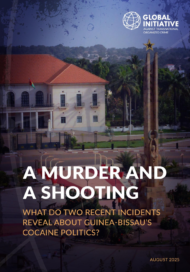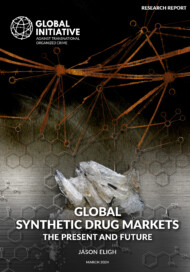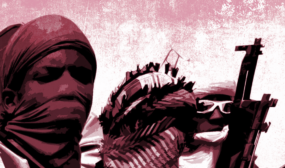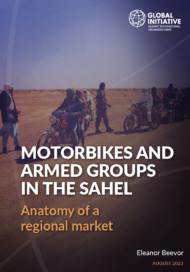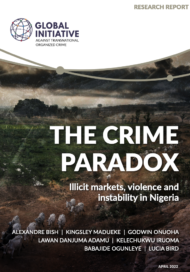Posted on 29 Aug 2025
Guinea-Bissau has long been a central cog in the international cocaine trafficking system. Between 2005 and 2007, consignments of cocaine that had washed up on the country’s beaches was used to paint buildings by bemused fishermen who had chanced across the mysterious powder. Colombian traffickers brazenly drove the streets of Bissau in yellow Hummers, and the country at one point was dubbed ‘Africa’s first narco state’ by the press, reportedly citing the UNODC.
Today, Bissau’s cocaine market is booming once again, and has arguably become more profitable than at any point in the country’s history.4 Tonnes of cocaine are regularly being trafficked through Guinea-Bissau, Colombians can be spotted at the top hotels in the capital, and retail prices for cocaine and crack are falling.
Yet, in contrast to cocaine capitals in other parts of the world, murders, and violence more generally, linked to the cocaine trade are uncommon in Bissau. And in the handful of cases where the cocaine trade has triggered violence, it has tended to be political in nature – coups, or assassinations of high-level political figures – contained within the small coterie of senior political players who benefit most from the lucrative trade, leaving ordinary Bissau-Guineans untouched.
So when in late July there were rumours that a Spaniard had been shot and killed in Guinea-Bissau’s paradisical Bijagos archipelago, a major offshore cocaine transshipment point for cocaine, it was highly unusual. It was rumoured that the murder was linked to a dispute over cocaine. In the end, the story turned out to be false – there was no murdered Spaniard, and the link to the Bijagos archipelago remains unclear. But the story does appear to have its basis in a more complex and equally disturbing truth. And in one detail it proved accurate: it had a strong whiff of the kind of violence that has been seen in Guinea-Bissau’s cocaine trade in the past.
Then, on 23 July, the body of a murdered man was found by fishermen on the shores of the Mansoa River, close to João Landim, a town near Bissau. It is not difficult to hide a body in Bissau’s lush, dense tropical forests and islands and make it disappear. The fact that the body was found, just days after the victim had reportedly disappeared, suggests that either this had been the perpetrator’s intention – that the murder had been designed to convey a message – or that it had not been committed by professionals.
At a press conference on 26 July, the family of the dead man confirmed that the body was that of Tano Bari, a member of Guinea-Bissau’s presidential guard.
At around the same time, a Colombian cocaine trafficker was reportedly shot in the leg by a member of Guinea-Bissau’s military in connection to a cocaine consignment stolen from the Colombians by a Bissau-Guinean widely known to be a cocaine trafficker. The Colombian had been tasked with protecting the consignment. The cocaine thief – reportedly Danilson Fernandes Gomes Ié, known more commonly as ‘Nick’, is widely considered by sources to be among Guinea-Bissau’s most prominent cocaine traffickers. The shooter was working for him, and had probably gone off-script. The injured Colombian fled to Spain (which may well have fed the rumour mill of a dead Spaniard). In the days after the shooting, the wholesale price of cocaine in Bissau plummeted – from €10 000–16 000 to €7 000 per kilogram – as ‘Nick’ tried to offload the cocaine for quick cash.
Are these two violent incidents connected? Why the sudden flurry of violence? And what might it foretell?
The clue can be found in the country’s politics. The cocaine economy is inextricably linked to the Machiavellian politics of the tiny West African state. In the country’s recent history, outbreaks of violence in the former can be closely correlated to moments of instability in the latter.
Guinea-Bissau is on the pathway to elections. Legislative and presidential elections are scheduled for November. Meanwhile, in the weeks following the murder and shooting, there were two reshuffles involving senior government posts – the replacement of the attorney general and the prime minister. At the same time, there have been growing crackdowns on freedom of the press in the country. With a flourishing cocaine market and expensive election campaigns looming in the coming months that need to be financed, Guinea-Bissau appears to be yet again entering a period of significant upheaval.
